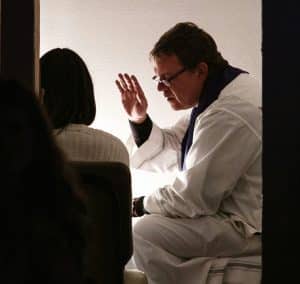The indulgence is a way of discovering the unlimited nature of God’s mercy… an expression of the fullness of God’s forgiveness, which knows no bounds.
– Pope Francis, Spes non confundit, #23.
We know that, when we participate in the Sacrament of Penance, we can be assured that God reconciles us to himself through the ministry of the Church – he forgives us, and our sins are wiped away.
Even thought we’ve been forgiven, the actions of our past change us in ways we don’t always see:
Still, as we know from personal experience, every sin “leaves its mark”. Sin has consequences, not only outwardly in the effects of the wrong we do, but also inwardly, inasmuch as “every sin, even venial, entails an unhealthy attachment to creatures, which must be purified either here on earth, or after death, in the state called Purgatory”. In our humanity, weak and attracted by evil, certain residual effects of sin remain. These are removed by the indulgence, always by the grace of Christ
– Pope Francis, Spes non confundit, #23.
And so what is an indulgence?
It is a special action of Christ’s grace that accomplishes the removal of the after-effects of sin on us, a deep healing. Where indulgences are attained, the healing that would otherwise need to have been brought about in purgatory is no longer required.
In both Canon Law, and in the Catechism of the Catholic Church, the specific words used are:
“An indulgence is a remission before God of the temporal punishment due to sins whose guilt has already been forgiven, which the faithful Christian who is duly disposed gains under certain prescribed conditions through the action of the Church which, as the minister of redemption, dispenses and applies with authority the treasury of the satisfactions of Christ and the saints”
– Code of Canon Law, #992. Catechism of the Catholic Church, #1471.
There are 2 types of indulgences: Plenary Indulgences, and Partial Indulgences

